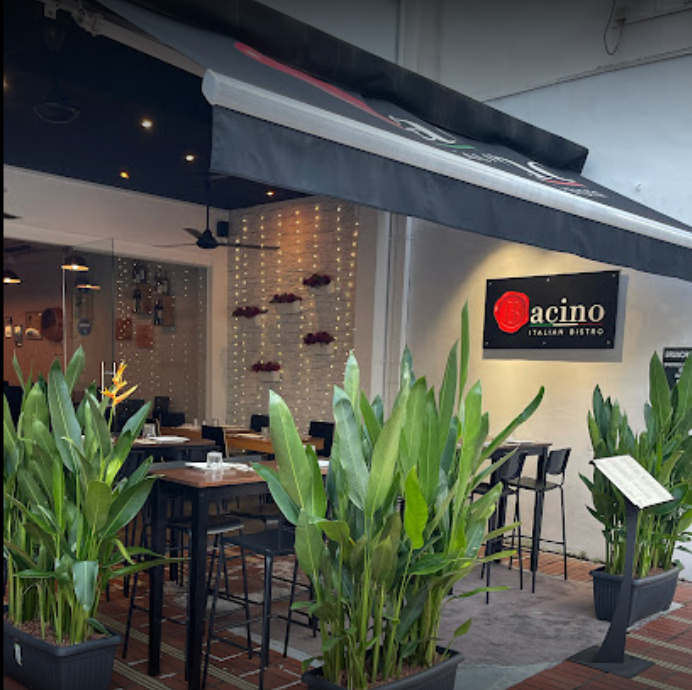Pasta, a staple of Italian cuisine, is beloved worldwide for its versatility, flavor, and simplicity. It’s hard to imagine Italian culture without its iconic pasta dishes like spaghetti carbonara, lasagna, and fettuccine alfredo. However, there was a time in history when pasta almost faced a ban in Italy. This article explores the surprising reasons behind this potential prohibition, delving into the social, cultural, and political factors that led to such an unusual consideration.
The Historical Context
To understand why pasta was almost banned in Italy, we need to look back at the early 20th century, a period marked by significant social and political upheaval. Italy, like many countries, was grappling with the effects of modernization, economic challenges, and a desire to redefine its national identity.
Futurism and the Anti-Pasta Movement
The driving force behind the movement to ban pasta came from an unexpected source: the Futurists. Founded in 1909 by Filippo Tommaso Marinetti, the Futurist movement was an avant-garde artistic and social movement that sought to break away from the past and embrace modernity. The Futurists celebrated speed, technology, and innovation, and they believed that traditional customs and foods were holding Italy back.
In 1930, Marinetti published “The Futurist Cookbook” (“La Cucina Futurista”), a manifesto that outlined the Futurist approach to food. This publication wasn’t just about recipes; it was a radical critique of Italian culinary traditions, with pasta singled out as a primary target.
The Critique of Pasta
Marinetti and his fellow Futurists saw pasta as a symbol of Italy’s outdated, lethargic past. They argued that pasta was heavy, starchy, and sluggish, contributing to a lack of vitality and creativity among Italians. Marinetti believed that Italy needed to abandon pasta to become a more dynamic and forward-thinking nation.
In “The Futurist Cookbook,” Marinetti made several bold statements against pasta:
- Nutritional Criticism: He claimed that pasta made people slow and lazy, both mentally and physically. Marinetti argued that pasta’s nutritional value was inferior to other foods that could provide more energy and better health.
- Cultural Criticism: Pasta was portrayed as a relic of the past that was incompatible with the modern, industrialized world that the Futurists envisioned. By abandoning pasta, Italians could symbolically break free from their historical constraints.
- Political Criticism: The Futurists saw pasta as an obstacle to Italy’s progress and modernization. They believed that by promoting alternative foods, they could help create a more industrious and innovative society.
The Proposed Alternatives
The Futurists didn’t just criticize pasta; they also proposed a range of alternative foods and dining experiences. They advocated for a cuisine that was lighter, more imaginative, and more in line with their futuristic ideals. Some of their suggestions included:
- Rice-Based Dishes: The Futurists promoted rice as a superior alternative to pasta. They argued that rice was easier to digest, more versatile, and could be prepared in various innovative ways.
- Synthetic Foods: In their quest for modernity, the Futurists also experimented with synthetic foods. They believed that science and technology could create new flavors and textures that would revolutionize the culinary world.
- Multisensory Dining: The Futurists encouraged a dining experience that engaged all the senses. They proposed using visual, auditory, and tactile elements to create a more immersive and stimulating meal.
Public Reaction and Resistance
Despite the Futurists’ passionate campaign against pasta, the idea of banning this beloved staple faced significant resistance from the public. Pasta was deeply ingrained in Italian culture, not just as a food, but as a symbol of family, tradition, and regional identity. Italians were not ready to give up their cherished pasta dishes.
The public reaction to Marinetti’s anti-pasta stance was largely negative. Many Italians viewed the Futurists’ ideas as extreme and out of touch with reality. Pasta had been a dietary cornerstone for centuries, and it was closely associated with Italian culinary heritage. The notion of abandoning pasta was seen as an attack on Italian identity itself.
Government Response
The Italian government, under the fascist regime of Benito Mussolini, had its own views on food and national identity. Mussolini’s regime promoted self-sufficiency and sought to reduce Italy’s reliance on imported goods. While the government supported the consumption of domestic products, it did not align itself with the Futurists’ radical anti-pasta stance.
Instead of banning pasta, the government focused on encouraging agricultural development and the production of traditional Italian foods, including pasta. Mussolini himself reportedly enjoyed pasta and did not see it as a hindrance to Italy’s progress.
The Enduring Legacy of Pasta
Despite the Futurists’ efforts, pasta remained a fundamental part of Italian cuisine. Over time, the anti-pasta movement faded, and pasta continued to be celebrated and enjoyed by Italians and people worldwide. Today, pasta is recognized not only for its delicious taste but also for its versatility and nutritional benefits.
The Futurist movement, while influential in many areas of art and culture, ultimately failed to reshape Italy’s culinary landscape. However, it did spark conversations about food, tradition, and modernity that continue to resonate. The Futurists’ provocative ideas challenged Italians to think about their culinary practices and the role of food in society.
Bacino Italian Bistro in Singapore
In the spirit of celebrating Italian culinary traditions, Bacino Italian Bistro in Singapore offers a delightful dining experience that showcases the timeless appeal of pasta and other Italian dishes. Located in a vibrant part of the city, Bacino Italian Bistro has become a favorite spot for those seeking authentic Italian cuisine.
Features of Bacino Italian Bistro
- Authentic Italian Recipes: Bacino Italian Bistro is committed to preserving the rich culinary heritage of Italy. The chefs at Bacino use traditional recipes and techniques to create dishes that reflect the true flavors of Italian cuisine.
- High-Quality Ingredients: The bistro sources premium ingredients, including fresh produce, artisanal cheeses, and high-grade olive oil, ensuring that every dish is flavorful and authentic.
- Inviting Ambiance: Bacino’s warm and welcoming atmosphere makes it an ideal spot for both casual meals and special occasions. The rustic decor, combined with attentive service, creates a memorable dining experience.
- Diverse Menu: Bacino offers a diverse menu that includes a variety of appetizers, salads, pizzas, pastas, and desserts. Seasonal specials and regional Italian dishes are also featured, providing diners with fresh and exciting options.
- Positive Reviews: Bacino Italian Bistro has garnered numerous positive reviews from customers who praise the restaurant for its delicious food, friendly staff, and cozy ambiance. It’s a highly recommended spot for anyone seeking an authentic Italian meal in Singapore.
Conclusion: The Resilience of Pasta
The story of pasta’s near-ban in Italy highlights the complex interplay between tradition, modernity, and national identity. While the Futurists’ radical ideas sparked debate, they ultimately could not displace the deeply rooted love Italians have for pasta. Today, pasta continues to be celebrated as a symbol of Italian culinary excellence.
In Singapore, Bacino Italian Bistro embodies the enduring appeal of Italian cuisine. By offering authentic dishes made with high-quality ingredients and traditional techniques, Bacino provides diners with a genuine taste of Italy. Whether you’re enjoying a classic pasta dish or exploring the diverse menu, Bacino Italian Bistro offers a memorable dining experience that honors the rich heritage of Italian food.
As you seek out Italian restaurants near you, remember the importance of authenticity, quality, and ambiance. With its commitment to these principles, Bacino Italian Bistro stands out as a top destination for anyone craving a true Italian meal in Singapore.














































































